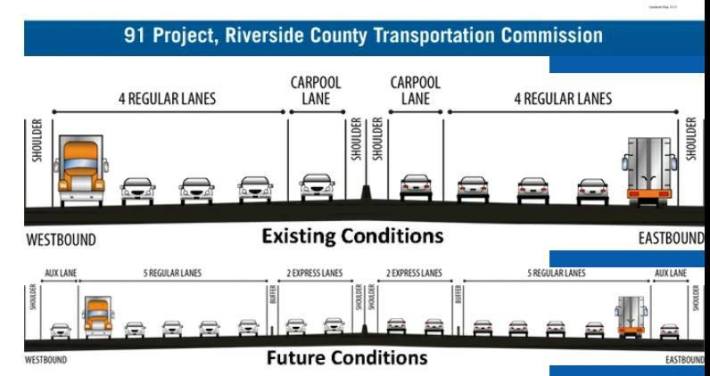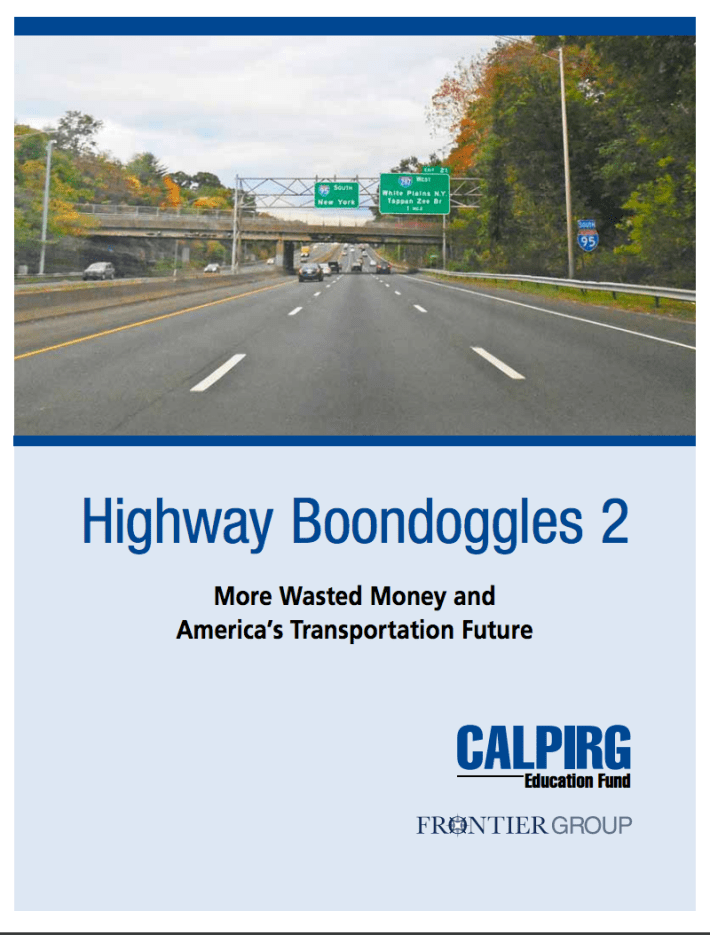Yesterday, the Public Interest Research Group (PIRG), a national non-profit with state chapters throughout the country, released a report detailing the "12 biggest highway boondoggles" under study in the country. Not surprisingly, a California highway project made the list, the I-710 Tunnel Project in Los Angeles County.
PIRG explains the project.
San Gabriel Valley Route 710 tunnel, California, $3.2 billion to $5.6 billion – State officials are considering the most expensive, most polluting and least effective option for addressing the area’s transportation problems: a double bore tunnel.
The 710 Expansion Project has been studied for decades and has been one of the most contentious projects in the region. For nearly a decade, Streetsblog Los Angeles has covered the public meetings, public outcry and community opposition to the project even as it soldiers on through study after study. The project was debated for decades before Streetsblog Los Angeles even existed.
Heck, this isn't even the first time a national environmental advocacy group has chimed in that plans to expand the 710 represented "one of the worst highway projects in the country."
The maligned 710 freeway project, which Streetsblog L.A. readers voted to name the "Southern California Big Dig" would extend the existing freeway north so that it connects with the 210. The most recent iteration of the project is championed by councilmembers and representatives of cities that are dealing with congestion on freeways and local streets south of the I-210 that connect with the 710.
However, opponents of the expansion argue that a tunnel project is not the answer to congestion and port traffic. "I do not believe that the 710 freeway tunnel alternatives proposed by Caltrans and Metro make sense for our region or taxpayers," writes Congressman Adam Schiff, who represents the portion of the San Gabriel Valley where the tunnel would be dug.
"For the same cost as the $5.6 billion tunnel, we could likely complete all of the alternatives -- light rail, bus, surface street improvements, bike and pedestrian walkways, cargo movement, and other traffic flow solutions -- combined, and use the remainder of the money to repair some of our aging infrastructure. These alternatives are not only more cost effective, but far less disruptive of the affected neighborhoods."
Opponents have put together their own list of solutions to address mobility with a mix of transit, active transportation and highway and road projects. PIRG published recommendations for Caltrans and other California transportation departments to follow that would apply not just to the 710, but to every highway project designed to "reduce congestion."

The study recommends that California and Caltrans:
1. Adopt fix-it-first policies that reorient transportation funding away from highway expansion and toward repair of existing roads and bridges;
2. Invest in transportation solutions that reduce the need for costly and disruptive highway expansion projects by improving and expanding public transit, biking, and walking options;
3. Give priority to funding transportation projects that reduce the number of vehicle-miles people travel each year, thereby also reducing air pollution, carbon emissions, and future road repair and maintenance needs;
4. Include future maintenance costs, a range of potential future housing and transportation trends, and the availability of new transportation options such as car-sharing, bike-sharing, ride-sharing, and transit in transportation project selection decisions;
5. Invest in research and data collection to better track, and more aptly react, to ongoing shifts in how people travel.
Caltrans has made progress in recent months, acknowledging that California's mania for building more highways is actually counter-productive. But as any twelve-step program will tell you, admitting you have a problem is just the first step. Governor Jerry Brown's recently proposed budget didn't show any major changes on how the state funds transportation projects. Neither did last year's.
But as for the 710, PIRG has a specific solution.
“Given that the proposed tunnel has extraordinarily high costs and would not serve to reduce congestion or improve air quality according to their EIR, Caltrans should immediately drop the 710 tunnel project,” writes Emily Rusch, the director of CALPIRG.






